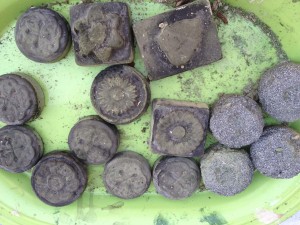Archives for March 2014
Day 7
Objects For Adoption
K-12 Lesson Plans

Human Relations Course to meet the Minnesota State Human Relations Requirement
HALL of FAME LESSONS
Created by Nate Brager for his Summer 2015 TA project. These are the best of the lesson plans created by students. Designed to make real change with how our marginalized students are treated by their peers AND their teachers!!
1. CONNECT TO WEEKLY UNIT Please make sure that your lesson activities connect to the unit we are working with. The purpose of this learner objective is for you to create curriculum which will raise the consciousness AND REDUCE PERSECUTION of the students towards the marginalized groups we are studying.
2. MOVE BEYOND THE DATA you MUST move beyond data collection and incorporate analysis. What does the data mean? How does it oppress the marginalized? Activity Ideas: Gathering data is fine but…. so what? You need to go to the next step. How will this bring the topic of marginalization in THIS country to their attention. Oftentimes, the research supports previously held biases! BRINGING IN AN AMERICAN INDIAN SPEAKER TO TALK ABOUT THE “OLD WAYS” IS OFTEN MORTIFYING FOR THE iNDIAN STUDENTS. You need to add critical analysis and individual assessment. How will your lesson reduce persecution of this marginalized group? You need to MAKE SURE THE STUDENTS THINK ABOUT ACTION THAY CAN TAKE TO IMPROVE THE MARGINALIZATION OF THE GROUP THEY ARE STUDYING!!
3. INDIVIDUAL ASSESSMENT As my students know…I am kind of a bear about “assessing” group work by watching the discussions. Unless you have a hit count sheet with you- that will not meet the criteria for independent assessment. I watched a student teacher lead a very lively discussion in his class and he used that discussion as the assessment for the activity. I did a hit count of participants as I watched. ..only 6 out of 28 participated. PLEASE INDICATE INDIVIDUAL ASSESSMENT STRATEGIES. Lesson Plan Rubric.html
Addiction Lessons
African and African American Lesson
American Indian Lessons
GLBTQ Lessons
Asian Lessons
More Addiction Reflections
PLEASE LET GO OF THE IDEA THAT ADDICTION IS A MORAL FAILURE. OFTEN IT IS NOT A CHOICE!!! JUST SAY NO IS A CRUEL, RIDICULOUS EXPECTATION!!
Kids DO experiment and the effects of opiates, especially, are very seductive. Once you have had that feeling- you always want it. ALWAYS.
Lesson: I would encourage you add the root cause (beyond social) of underage drinking. Need to add the HOW to your objective.
Many students who go on to full blown chemical addiction are self medicating for mood disorders. NAME the feelings so the students might recognize simple adolescent anxiety and be able to identify if they feel something beyond those “normal” social awkwardness.
___________________________________________________________________________________________________________
The purpose of mentioning the connection between MI and addiction at young ages is clear. IF they are using and have tried to stop but can NOT… it may inform them that they may be suffering from a mood disorder.
___________________________________________________________________________________
Lesson: Ok… do you have what I call a ” This is your brain on drugs” lesson. You need the next step. Personalize it. Who do THEY know who smokes-smoked?
___________________________________________________________________________________________________
Should be in all lessons:
Students will understand that mood disorders are not moral failures.
Students will investigate why parents would rather think their children are addicts, rather than suffering from mood disorders.
________________________________________________________________________________
I was encouraged to see that there is a general understanding that bias often equals lack of data. The challenge is delivering the data so the students can hear it, process it and maybe even recognize symptoms in themselves or family and friends.
____________________________________________________________________________________
I think it is important to consider that making sure students see the statistics between Mental Illness and Addiction may make them a little less likely to see chemical abuse as some kind of “cool” badge or rite of passage.,
Humans have been seeking to alter their perceptions for thousands of years. Did you twirl on a swing until you were dizzy? Valley Fair makes a fortune off our search for the physical thrill. How do we teach our students to seek a different kind of cerebral thrill?
__________________________________________________________________________________
Regarding the term “Mental Illness” .I usually call the kinds of issues most of our students are dealing with as mood disorders… it moves away from the terror people feel when they hear “Mental Illness”.
__________________________________________________________________________________________
Teachers DO have an ethical responsibility to put a mental illness and addiction unit in their curriculum!
-_______________________________________________________________________________________
I am certainly enjoying your voice here in class! I WILL take your stupid quote with a little modification.
You can’t fix stupid but stupid will ALWAYS get YOU in a fix!!! As I said to another student… this false sense of security about letting their kids drink at home astonishes me!! Here are a few stats from the Center of Disease Control ( notice it says DISEASE). IN THE UNITED STATES… There are 1.2 million heroin users. 2000 die each year. There are 150 million alcohol users and 25,000 die each year (NOT COUNTING accidents!!!!!) ONLY alcohol, INDEED!
_______________________________________________________________________________________
SUGGESTION: When I know a student is abusing chemicals…I talk to them about the difference between “recreational highs” and self medicating to feel “normal”. This is what I have heard the users say over and over. “I just want to feel normal.” I suggest to them that scrounging after the money to pay for self medication makes no sense and will lead to a bad place, eventually. I suggest to them:
“Why not check out getting legitimate help if you might be suffering from a mood disorder and let insurance pay for the chemical adjustment? That approach gets everyone off your back, allows you to put your money into fun stuff and will simplify your life in a very real way!”
This has worked for me many times! Note: I am a pragmatist. Mainers are straight up. No whining allowed. The cultural attitude is “Fix it or shut up!” so you must filter my reflections through that cultural lens ; . /
_______________________________________________________________________________________
Prescription drugs on the rise for abuse. One of you mentioned that the students seem to think these are “safe” because they come from the parents cabinet, after all! Parents are hesitant to report a “theft”. How could we raise the awareness without putting the parents on the defensive?
___________________________________________________________________________________
Can addicts “Just quit” using will power? Generally, NO! This is such a cruel and damaging attitude held by the uninformed public. If a student is self-medicating for a mood disorder…just quitting will make them feel so dreadful they can not stand it. Why does drinking “run in families”? Do you suppose the moms and dads might have the same mood disorder? On that topic… many parents would rather have their children be addicts because they do not have to look into their own issues… back to the stigma! Why is this chemical imbalance different than diabetes? Thyroid conditions?
__________________________________________________________________________________________Meth is one of the most popular drugs of choice in rural areas. It is cheap to produce and easy to find materials for production. Students will find this exciting, it supports performance activities, including sex and is the ultimate ego trip.
_____________________________________________________________________________________
IDEA: One approach I have found successful with younger students. Talk to them about spinning until you are dizzy. On a swing. On a round up. On a fair ride? Ask them, “Have you done that? Why do you like the feeling? Are grown ups looking for that feeling when they use chemicals? Why do humans like that feeling? “ THEN talk about the logical liabilities. Maybe use CALM as a lead in?
______________________________________________________________________________________
Several of you have shared that you are coping with mood disorders. I really like the idea of bringing successful people in to share with students but I would be careful sharing your personal information. Professional boundaries are really important, from my experience. The student you tell may get it but others they share with may not. I am not talking about our circle of learning, of course, because what happens in Dr. B’s HR, STAYS in HR.
_____________________________________________________________________________________
Several brought up the important point that teachers are not counselors. We are in a position to identify symptoms for early intervention. As several noted… chicken and egg…It does not matter which comes first, drugs use damages the brain, especially meth.
_______________________________________________________________________________________
Re: Longitudinal studies over time… make sure to select a subject the students are interested in. For Example: Correlation between alcohol, marihuana and opiate use? Most of the bi-polars and ADHDers prefer opiates (for obvious reasons).
______________________________________________________________________________-
Re: Emotional vs. chemical. Careful thinking that talk therapy which delves into the psyche as a stand- alone fix. It is tempting to conclude this may be why some family members are affected and some are not. Remember that individual chemistry is a genetic roll of the dice.
Re: Families. This is an important point. The stigma is very strong here and imagine how well it works if the parent has developed coping mechanisms and the children can not. VERY difficult for all.
I really support the idea of investigating the chemical composition of common drugs, say Adderall, and how it works. Many people are confused that it is a stimulant but calms the ADHDers down. Brilliant idea.
Re: ADHDers self medicating with marijuana. VERY, VERY common. I can not believe I have come to this place but I am beginning to support the legalization of medical marijuana. Here is why: Many sufferers of ADHD report that it works better than Ritalin or Adderall. Currently, these people have to pay out of pocket AND connect themselves with dealers who urge them… heroin is so much better and cheaper! This is how marijuana becomes a gateway drug!
____________________________________________________________________________________-
Re: The pharmaceutical companies. THEY are not having an economic downturn- you can depend on it!! My current favorite is the Viagra commercial that counsels to call a doctor if your erection lasts more than 5 hours. What marketing genius! The unknown fact is that the blood supply is cut off for those 5 hours. If this same blood loss happened to your hand- repeatedly- it would die and fall off. Yikes ; /
___________________________________________________________________________________-
Re: What happens to the mentally ill after age 21 and they are out of “the system”. Look on the streets. It is so tragic. YOU as teachers have the opportunity to save them from this outcome.
Males and substance abuse. Is it more manly to be an addict than to suffer from a mood disorder? Why is that?
Why do we stigmatize the chemical imbalance of a mood disorder more than a chemical imbalance of diabetes?
—————————————————————————————————————————————
I would like to recommend several books which I have given away many times. I buy them by the half-dozen now : / “Touched by Fire”is a very dense (but excellent) survey of several famous families who have dealt with mental illness. It is quite an eye opener and certainly deals with mental illness, creativity and success. An easier read is a book called “An Unquiet Mind”.
A more accessible book for sufferers and/or families who may not be strong scholars is “An Unquiet Mind”. Both these books are by Kay Johnson. Dr. Johnson is a bi-polar who is currently a professor at Johns Hopkins. She has quite a story.
More Recovery
Hello all,I am a guest of Dr. Bridges come to share my experience with addiction and mental illness.I grew up in what would be considered by most to be a typical American family. We had a stay at home mother, corporate executive father and 2 kids in our nuclear family. My sister and I wanted for very little, except perhaps a present father figure in our lives. My father was an intelligent man with a high powered job, but he was focused on smoking, drinking, and pursuing his personal interests.
I swore to myself that I would never pick up a drink or a drug. This lasted till the end of my high school career. I spent my entire childhood and adolescent feeling like an outsider looking in. Near the end of high school I found acceptance among a group of other social outcasts. I started drinking with them just before my eighteenth birthday.
For the first time in my life I did not feel locked up within the prison of my mind. My thick shell of self-conscious analysis melted away and nothing seemed important. People and situations no longer had the same impact on me. The ever-present feelings of anxiety and disconnectedness disappeared. I made a total ass out of myself, and angered a number of my peers with my outrageous behavior. The consequences didn’t matter. I loved the feeling of absence and I prepared to give myself to oblivion.
Using drugs and alcohol offered me a release. They offered me relief for the first time I could remember in my life. I can’t tell you whether I am predisposed genetically to addictive behavior. I don’t know whether a tumultuous home life and lack of a male role model was causal. People who know little of addiction may assert that my abuse of chemicals was a failing of morality or a deficiency of character. I can tell you, based on the hundreds of people from all walks of life that I’ve met struggling with addiction, that the answer is not as simple as a single sentence.
The relationship between mental illness and addiction is incredibly complex. Strong correlations have been established between the two, and so dual-diagnosis treatment of addiction and mental illness has become more and more common.
Throughout my tenure as a drunk and a junkie I have been labeled with every diagnosis you could possibly imagine. It is incredibly difficult to diagnose an addict who is active in their addiction because many of the symptoms of drug addiction and mental illness coalesce.
Now that I’ve been sober for a period of time, my mental illness symptoms have subsided with the exception of the ones that played a huge part in the development of my addiction. I still suffer from anxiety at times, particularly social. I learned about the power of my cognitions to create these feelings, and as time passes and I practice the tools I’ve been given these symptoms decrease. I got the support I needed from other addicts like myself as well as a community of professionals who truly understood that addiction behaves very much like a disease. As future educators I would encourage you to learn about the disease model of addiction, and if you are somewhat ambitious, the neurobiological research on the subject is truly fascinating.
I can see how many people here have been touched by addiction and mental illness in their own lives. This truly is a problem that affects individuals in all walks of life regardless of status or education. As you become teachers you will invariably encounter those who are already struggling or who are at higher risk than others due to factors such as social rejection, troubled home lives and myriad other factors. Last I read most general practitioners in family medical practices only spent 2-4 weeks learning about addiction in their training. I believe that it is imperative for you as teachers to understand how addiction works, how to respond to individuals struggling with it, and how to talk to families about these issues.
Thank you for your time.
A. N. Addict


















